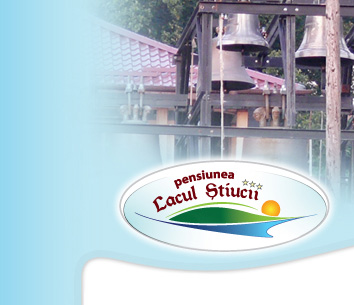Dragobete
22-24.02.2013
Our Valentine’s Day is called DRAGOBETE, a specific Romanian Holiday.
It is an endemic Romanian holiday celebrated on the 24th of February or in some places on the 28th, or 1st, 3rd or 25th of March. Dragobete is considered as the Romanian equivalent to Valentine’s Day, or the day of St. Valentine, the celebration of love. The origin of the word was discussed by various ethnologists and philologists arriving at different explanations.
On the 24th of February, when the Orthodox Church celebrates, the Finding of the Venerable Head of John the Baptist, the spirituality of the people marks the day of Dragobete, the god of youth in the Pantheon of the land, patron of love and good humor.
Dragobete was the day when boys and girls dressed up in their holiday apparel and, if the weather was nice, they started out in groups through the forests and meadows, singing and looking for the first flowers of spring. On this day the girls would gather snowdrops, violets and muscatels that they would place on Madonna to safeguard them until Sanziene (the word designates an annual festival in the fairies' honor) when they would throw them in flowing waters. It used to be the holiday of groups of youngsters that would go out from the villages into the woods, would dance “hora” (a Romanian round dance), would kiss and embrace one another. It carried all the features of a premarital holiday, of establishing relationships between the youngsters of the community that would anticipate weddings.
The morning of Dragobete the girls and the young women would gather fresh snow, melt it and wash their hair with the water resulting from the snow. They believed that their admirers would like their hair and complexion now pleasant looking from the melted snow.
It was also believed that on Dragobete’s day the migrant birds would flock around chirping, choose a partner and start building nests. The elderly would respect this holiday because they thought that this way they could stay away from cold and other illnesses. In some places Dragobete was celebrated on the 1st of March because it was thought that he is the son of Baba Dochia, or The Old Dochia, a figure identified with the return of spring in Romanian mythology, the herald of spring. A mythological divinity, similar to Eros or Cupid, Dragobete is considered a handsome, good looking young man and a big time lover boy. Not as tenderhearted as St. Valentine, but more so impetuous, the god that officiated the heavenly wedding of all animals in the beginning of spring. With the years this tradition extended to people as well.
Thus, on Dragobete, the girls and the boys meet in order for their love to last all year long, just like the love of birds which get engaged on this day. The reason for the overtaking of the habits of birds was very profound since birds were regarded as the messengers of gods, the word “bird” in Greek meaning “the message of heavens”.
